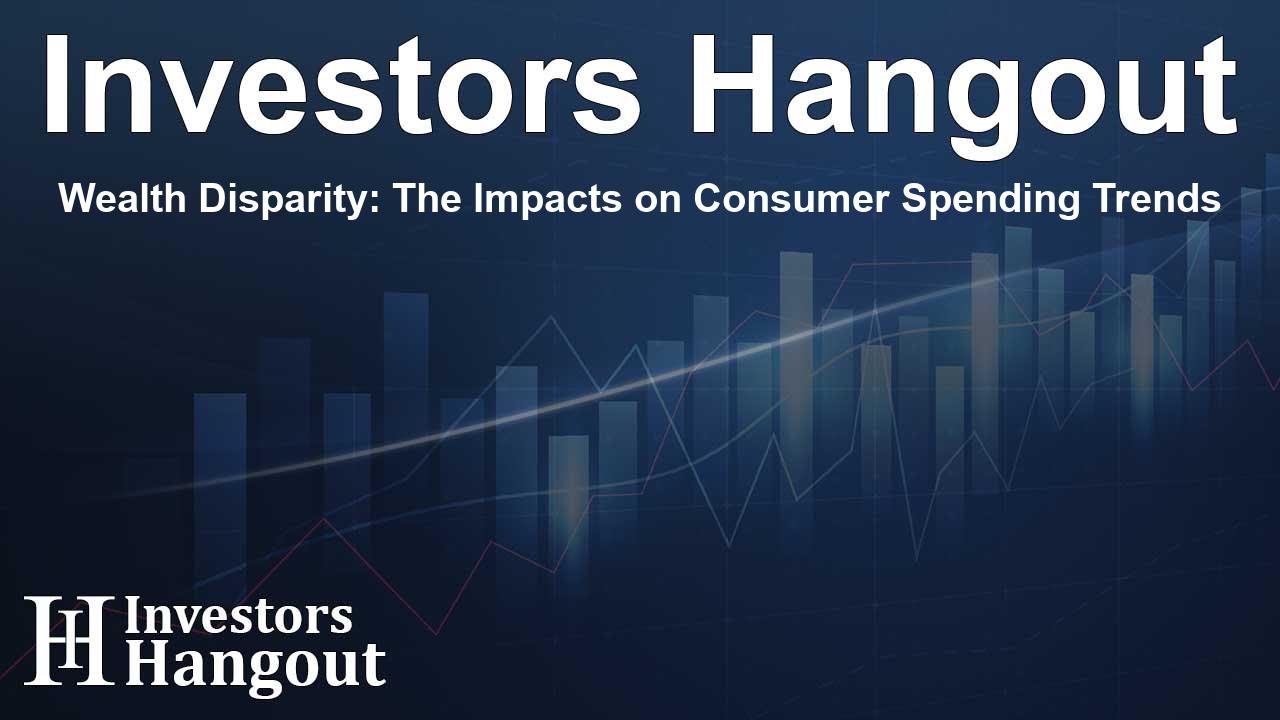Wealth Disparity: The Impacts on Consumer Spending Trends

Understanding America's Changing Spending Patterns
In today’s economy, consumer spending is heavily reliant on the wealthiest households. Recent data indicates that the top 20% of earners contribute more than half of all consumer spending, leaving the middle and lower income sectors trailing behind.
The Divide Between Income Groups
Data reveals that the spending habits of the wealthiest households have surged significantly. For instance, between late 2019 and now, personal expenditures from the top 20% of income earners have surged approximately 50%. In stark contrast, the other 80% of households only increased spending by about 25%, barely keeping pace with inflation, which has risen 24% in the same period.
Implications for Employment
This concentration of spending among the affluent poses serious risks to economic stability. Small businesses, which rely on customers from all income levels, have reported a decline in traffic from less affluent shoppers. This lack of demand could ultimately affect job growth and hiring capacities.
The Fragility of Consumer Spending
Although it appears that the economy is thriving, fueled by a small segment of high earners, its foundation is precarious. Economist Mohamed El-Erian points out that the economic struggles of lower-income households can ripple through the economy, negatively influencing corporate health and employment opportunities.
The Risks of Economic Concentration
Recent analyses highlight a potential second risk often referred to as the 'wealth effect.' This refers to a phenomenon where increased stock market valuations lead affluent households to spend more. Conversely, if markets experience downturns, the wealthy may quickly retract their spending, exacerbating economic fragility.
Market Sensitivity of the Wealthy
Warnings from financial experts indicate that a significant decline in market performance could lead to reduced spending by high-income households. Recent studies indicate that affluent Americans are particularly sensitive to fluctuations in the stock market, which could undermine overall economic growth.
Current Spending Trends
For now, spending in luxury and travel sectors, targeting high earners, remains robust. In contrast, retailers focusing on middle or lower-income consumers report slower growth. This trend underlines the dual nature of the economy, where luxury markets prosper while others face challenges.
What This Means for Investors and Businesses
In light of these dynamics, investors and businesses need to carefully consider the implications of wealth concentration on market health. Understanding consumer behavior across income levels can provide insights that drive strategic decisions.
Frequently Asked Questions
What is the 'wealth effect'?
The 'wealth effect' refers to the tendency of affluent households to spend more when stock markets are rising and reduce spending when markets falter.
How have spending patterns changed among different income levels?
Spending among the wealthiest 20% has increased by around 50%, while the other 80% has only seen a 25% increase, trailing behind inflation.
What impact does consumer spending have on the economy?
Consumer spending constitutes approximately two-thirds of the U.S. GDP, highlighting its crucial role in economic stability.
Why is the performance of small businesses significant?
Small businesses are critical for job creation, and their struggles with reduced traffic from low-income households can negatively impact hiring.
What sectors are currently experiencing higher consumer spending?
Luxury and travel sectors are benefiting from high earners, while value segments focused on squeezed households are facing challenges.
About The Author
Contact Logan Wright privately here. Or send an email with ATTN: Logan Wright as the subject to contact@investorshangout.com.
About Investors Hangout
Investors Hangout is a leading online stock forum for financial discussion and learning, offering a wide range of free tools and resources. It draws in traders of all levels, who exchange market knowledge, investigate trading tactics, and keep an eye on industry developments in real time. Featuring financial articles, stock message boards, quotes, charts, company profiles, and live news updates. Through cooperative learning and a wealth of informational resources, it helps users from novices creating their first portfolios to experts honing their techniques. Join Investors Hangout today: https://investorshangout.com/
The content of this article is based on factual, publicly available information and does not represent legal, financial, or investment advice. Investors Hangout does not offer financial advice, and the author is not a licensed financial advisor. Consult a qualified advisor before making any financial or investment decisions based on this article. This article should not be considered advice to purchase, sell, or hold any securities or other investments. If any of the material provided here is inaccurate, please contact us for corrections.
